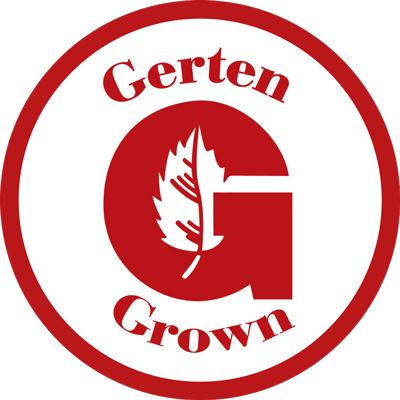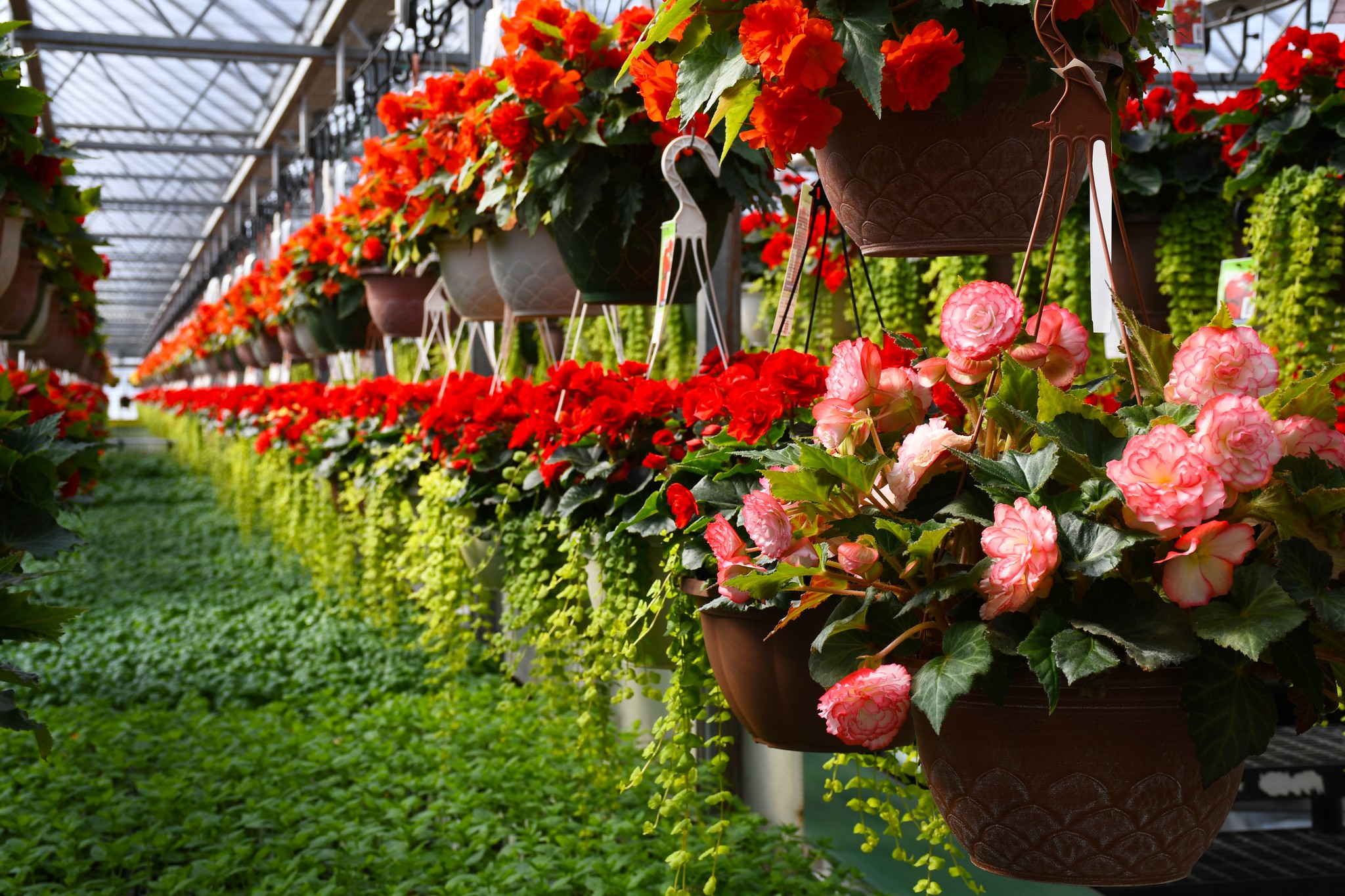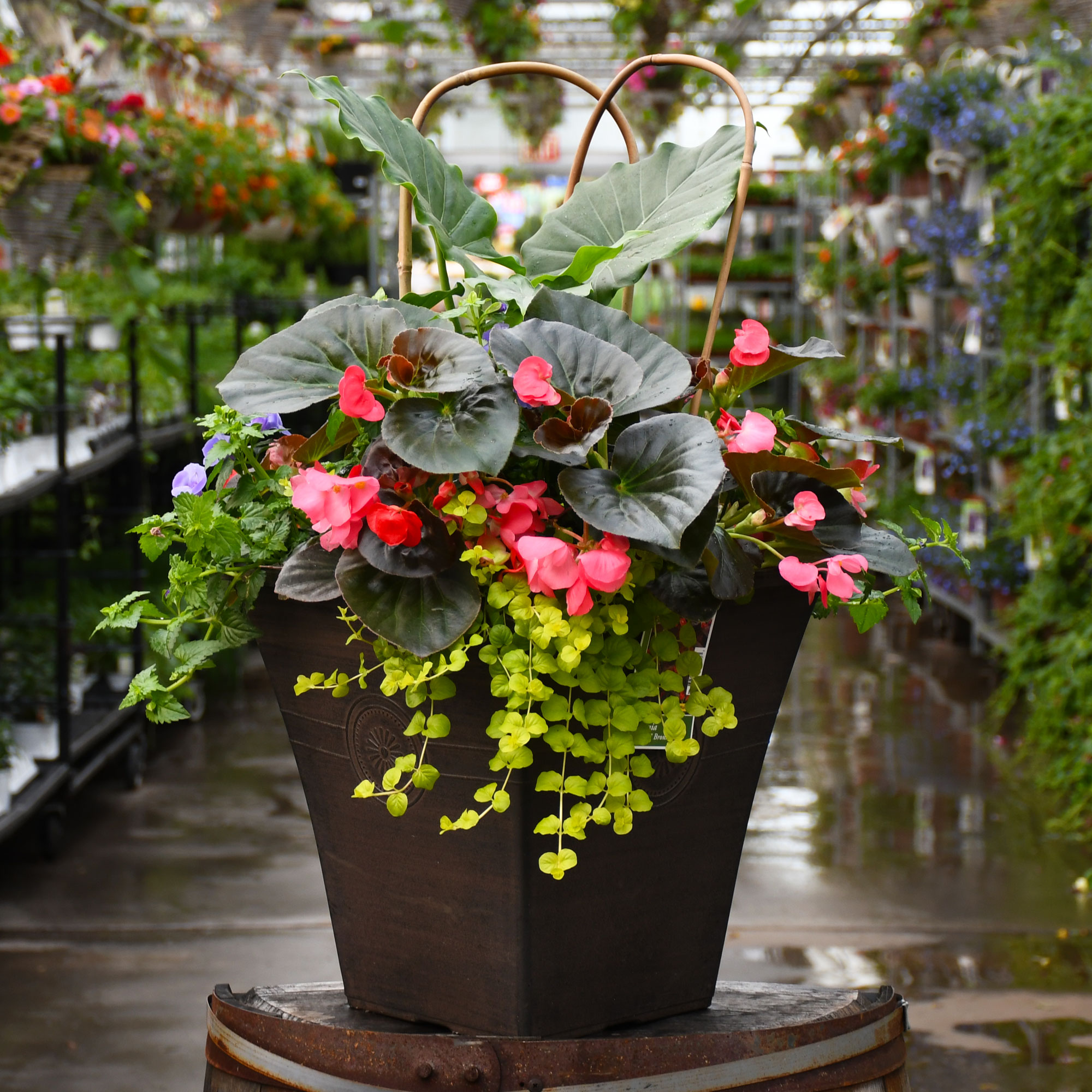Bacopa, Scopia 'Gulliver Blue'



Out of stock
Sold out for the season, check back in the Spring!- Sun Preference
- Full-Sun, Part-Sun
Description
Scopia Gulliver Blue Bacopa is covered in stunning purple star-shaped flowers with sky blue overtones and yellow eyes along the stems from mid spring to late fall. Its small serrated round leaves remain green in color throughout the year.
Direct from the Grower
When you see the Gerten Grown logo on our annuals, you know you're getting a fresh plant directly from our greenhouse. We've been perfecting our growing process for over four generations and pride ourselves on providing local quality and freshness to our customers. Better pricing on better quality plant material, that's Gerten Grown.
Details
Scopia Gulliver Blue Bacopa | Sutera cordata 'Scopia Gulliver Blue'
Hardiness Zone: (annual)
Group/Class: Scopia Series
Landscape Attributes
Scopia Gulliver Blue Bacopa is an herbaceous annual with a trailing habit of growth, eventually spilling over the edges of hanging baskets and containers. Its relatively fine texture sets it apart from other garden plants with less refined foliage.
This plant will require occasional maintenance and upkeep, and should not require much pruning, except when necessary, such as to remove dieback. It has no significant negative characteristics.
Scopia Gulliver Blue Bacopa is recommended for the following landscape applications;
- Mass Planting
- Border Edging
- General Garden Use
- Groundcover
- Container Planting
- Hanging Baskets
Planting & Growing
Scopia Gulliver Blue Bacopa will grow to be only 6 inches tall at maturity, with a spread of 24 inches. When grown in masses or used as a bedding plant, individual plants should be spaced approximately 20 inches apart. Its foliage tends to remain low and dense right to the ground. Although it's not a true annual, this fast-growing plant can be expected to behave as an annual in our climate if left outdoors over the winter, usually needing replacement the following year. As such, gardeners should take into consideration that it will perform differently than it would in its native habitat.
This plant should only be grown in full sunlight. It does best in average to evenly moist conditions, but will not tolerate standing water. It is not particular as to soil type or pH. It is highly tolerant of urban pollution and will even thrive in inner city environments. This is a selected variety of a species not originally from North America. It can be propagated by cuttings; however, as a cultivated variety, be aware that it may be subject to certain restrictions or prohibitions on propagation.
Scopia Gulliver Blue Bacopa is a fine choice for the garden, but it is also a good selection for planting in outdoor containers and hanging baskets. Because of its trailing habit of growth, it is ideally suited for use as a 'spiller' in the 'spiller-thriller-filler' container combination; plant it near the edges where it can spill gracefully over the pot. Note that when growing plants in outdoor containers and baskets, they may require more frequent waterings than they would in the yard or garden.
More Information
| Gerten Grown Plants | Gerten Grown Plants |
|---|---|
| Common Family Name | Bacopa |
| Sun Preference | Full-Sun, Part-Sun |
| Plant Life Cycle | Annual |
| Mature Height (Range) | 7-12" |
| Mature Spread (Range) | 12" - 24" |


